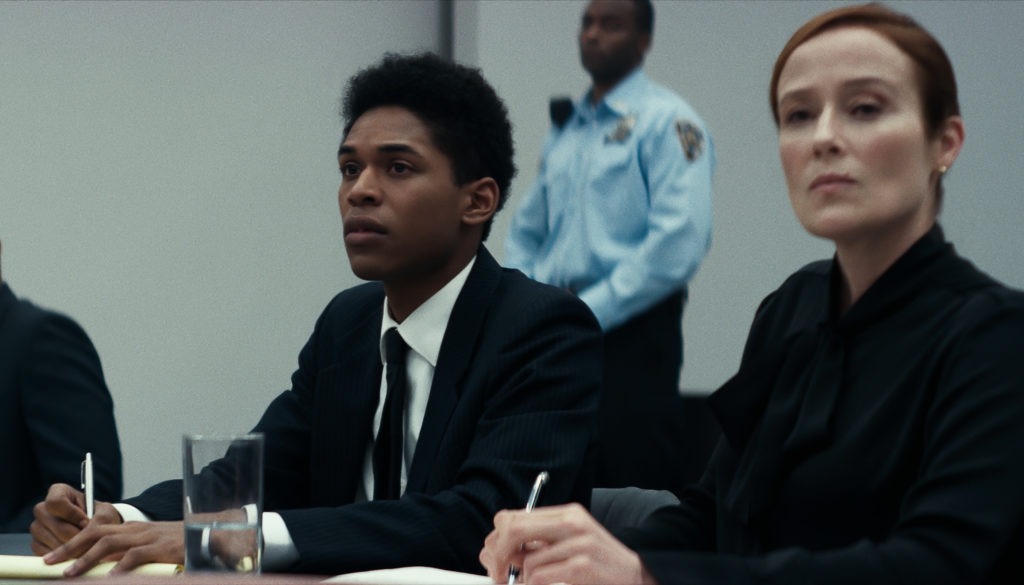Monster

Kelvin Harrison Jr. and Jennifer Ehle star in MONSTER. (Photo: Netflix)
Addressing the most topical of social issues with understated sensitivity, Monster shouldn’t have its low-key approach mistaken for a lack of urgency.
This coming-of-age drama about an ordinary teenager enduring racial and socioeconomic inequities within the justice system conveys a worthwhile message that both infuriates and inspires without turning strident or heavy-handed.
The film opens with Steve (Kelvin Harrison Jr.), a 17-year-old aspiring filmmaker from Harlem, arrested for alleged involvement in the murder of a bodega clerk. He’s in jail and awaiting trial, insisting he’s not guilty.
His public defender (Jennifer Ehle) believes him, but she’s blunt about the uphill battle to convince a jury. “You’re young, you’re black, and you’re on trial,” she explains. “What else do they need to know?”
From there, much of the story is told in flashbacks to Steve’s involvement with a gangster (rapper A$AP Rocky) who’s also accused of the crime, his desire to steer clear of trouble in a rough neighborhood, how his artistic vision shapes his plans for the future, and his recollection of the incident in question. But did he make an innocent mistake that could jeopardize everything?
The directorial debut of music-video veteran Anthony Mandler finished shooting almost four years ago, yet survived some post-production turmoil with its timeliness intact.
Harrison (Waves) continues to showcase his versatility with a richly textured performance that captures a delicate balance of internal strength and external vulnerability. The rest of the ensemble cast helps to elevate some thinly sketched periphery roles, including Jennifer Hudson as Steve’s spiritual mother and John David Washington as a key witness.
Like its quiet and unassuming protagonist, Monster is earnest but powerful in its more intimate and introspective moments, even if the persistent stream-of-consciousness narration is more rambling than profound.
The nonlinear screenplay, based on a young-adult novel by the late Walter Dean Myers, mostly sidesteps cliches of a prison drama or a legal procedural with a thoughtful examination of subconscious biases. However, its episodic nature tends to diminish the cumulative impact.
Aside from more overt acts of racism that dominate the headlines, the film turns a critical eye instead toward the dangerous power of perception, the presumption of guilt over innocence, and how fragile power dynamics on the street contribute to the cycle. The fact that Steve’s struggle feels so common is precisely why it’s so provocative.
Rated R, 98 minutes.